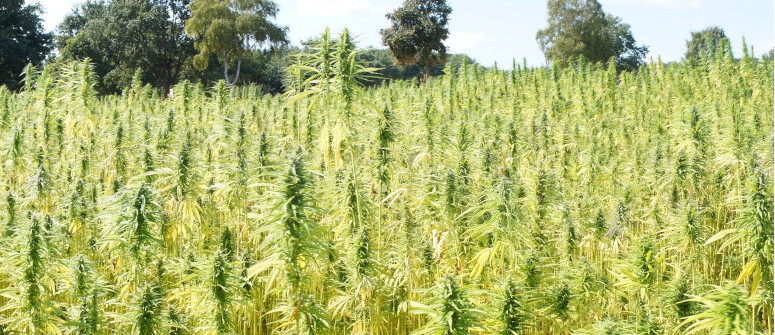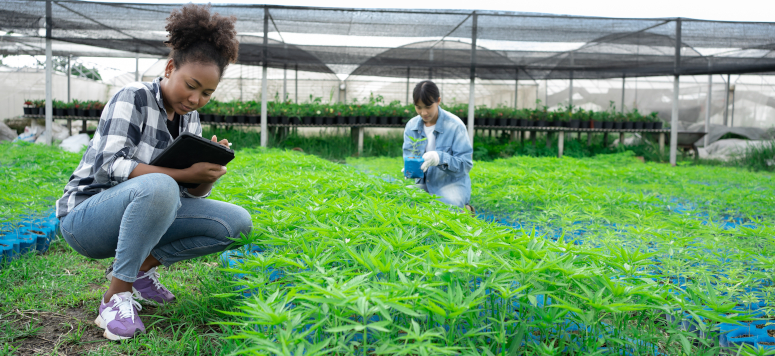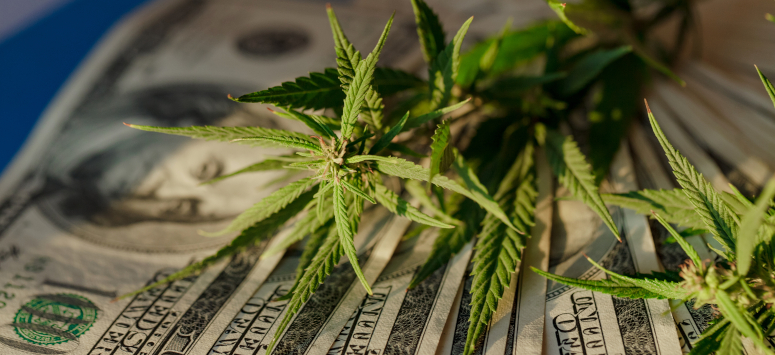$824 million hemp industry at risk

The 2018 Farm Bill expired in September 2023. And while Congress scrambles to have the bill renewed by December, the impact of an expired bill has flung the US' booming hemp industry into a state of uncertainty. Keep reading to learn what an expired Farm Bill means for US hemp.
Every five years or so, US House Representatives and Senators sit together to review and renew the Farm Bill—a set of legislations that shapes American agriculture, from setting commodity prices to outlining conservation strategies and much more.
This year, Congress failed to meet its September deadline to review and redraft the bill, leaving the agricultural industry in a state of limbo. The US’ multi-million-dollar hemp industry finds itself particularly afflicted, seeing as the Farm Bill served as the cornerstone of legal hemp production across the country.
How the Farm Bill fuelled the hemp renaissance
After years of extremely strict cannabis prohibition, the 2018 Farm Bill provided a light at the end of the tunnel. For the first time in almost a century, the US government made clear distinctions between different types of cannabis and different parts of the cannabis plant.
The bill clearly removed hemp (i.e. low-THC cannabis) and hemp seeds from the DEA’s schedule of controlled substances, authorising its cultivation and the manufacture/sale of hemp products across the country.
In short, the 2018 Farm Bill set up the groundwork for a new industry with an estimated worth of $824 million in 2021.¹ Farmers were given a chance to diversify their crops and generate new revenue streams, while businesses looking to manufacture hemp into textiles, food, or even medicine could do so completely legally.
Besides carving out a new legal industry for countless hemp products and derivatives, the 2018 Farm Bill also facilitated research into hemp and its potential as a medicine. Under the Marihuana Tax Act of 1937 and the Controlled Substances Act of 1970, cultivating cannabis even for research purposes became extremely restricted, hindering our ability to study a plant with a history of medicinal use dating back thousands of years.
Moreover, the 2018 Farm Bill created opportunities to fuel sustainable development. Besides being a cash crop, hemp is known to be a sustainable plant that can remediate soil,² produce biofuel,³ and even offer a sustainable alternative to concrete.⁴ By being able to legally grow, study, and manufacture hemp/hemp products, exploring and implementing sustainable hemp-based initiatives became much more than a pipe dream.

The Farm Bill and regulatory clarity
For decades, cannabis companies, their employees, as well as cannabis users have been forced to work around legal loopholes and grey areas. Lacking a federal infrastructure, states across the country have proceeded to take their own approach to legislating cannabis, creating a murky legal landscape where something that might be legal in one part of the country could land you a prison sentence across state/county lines.
The 2018 Farm Bill, while far from perfect, served as an opportunity to change that. By establishing a clear distinction between hemp and marijuana based on the level of THC (tetrahydrocannabinol, the psychoactive compound in cannabis), the bill created a foundation for the development and marketing of hemp-derived products on a federal level.
This clarity was instrumental in providing businesses with the confidence to invest in hemp-related ventures, and fuelled the rapid growth of a booming industry in recent years. Moreover, the bill helped to address the issue of financial services for cannabis companies, finally giving those businesses dealing with hemp access to regulated, well-established, and secure financial services.
At the other end of the spectrum, the 2018 Farm Bill also provided regulatory clarity for consumers. With clear-cut federal safety and quality standards for hemp products, the 2018 Farm Bill provided consumers with a plethora of products (from CBD gummies and hemp seeds to tinctures and more) that they could trust.

The threat of expiration
Despite the undeniable progress facilitated by the 2018 Farm Bill, the bill's expiration in September 2023 has slung the hemp industry back into a state of uncertainty.
The legal framework for hemp cultivation and the sale of hemp-based products like CBD, for example, has suddenly been thrown into question. The absence of federal guidelines could lead to a patchwork of conflicting state regulations, causing confusion for businesses while stifling innovation and investment.
Moreover, the absence of a clear regulatory structure could also expose businesses to legal risks. Without federal protection, hemp companies could become vulnerable to legal challenges, particularly if they operate in states with strict cannabis laws. This legal uncertainty could deter new companies or entrepreneurs from entering the industry and lead to the closure of existing businesses.
Additionally, the lack of access to established and secure financial services could resurface as a major issue for hemp companies. Banks and financial institutions may once again become wary of engaging with cannabis and hemp businesses, forcing these enterprises back to operating in cash or using other unregulated and potentially risky financial services.
Finally, the expiration of the Farm Bill is also set to affect the consumers driving the hemp industry. Under the 2018 bill, users of hemp and its derivatives enjoyed access to an ever-growing selection of products held to federal standards that ensure quality and safety. Without the 2018 Farm Bill’s legal framework in place, the variety of hemp products available may drop, and subpar products might also find their way onto the market.
If the US wants to safeguard its blossoming hemp industry, renewing the Farm Bill is key. Without it, the country stands to lose a multi-million-dollar asset with huge potential to support the health of the American economy and its people.
References:
1. Value of hemp production totaled $824 million in 2021. www.nass.usda.gov. https://www.nass.usda.gov/Newsroom/2022/02-17-2022.php
2. Placido DF, Lee CC. Potential of Industrial Hemp for Phytoremediation of Heavy Metals. Plants. 2022;11(5):595. doi:https://doi.org/10.3390/plants11050595
3. The postponed promise of hemp biofuel - cannabis business times. Accessed October 5, 2023. https://www.cannabisbusinesstimes.com/news/postponed-promise-hemp-biofuel-biomass-hempseed-oil-uk-uconn-hia/
4. Network CgtnGT. Could this bio-based concrete made of hemp make our homes more energy efficient? newseu.cgtn.com. Accessed October 5, 2023. https://newseu.cgtn.com/news/2023-03-11/Is-bio-based-hemp-concrete-a-pathway-to-more-energy-efficient-homes--1i2HuD9IBXi/index.html




